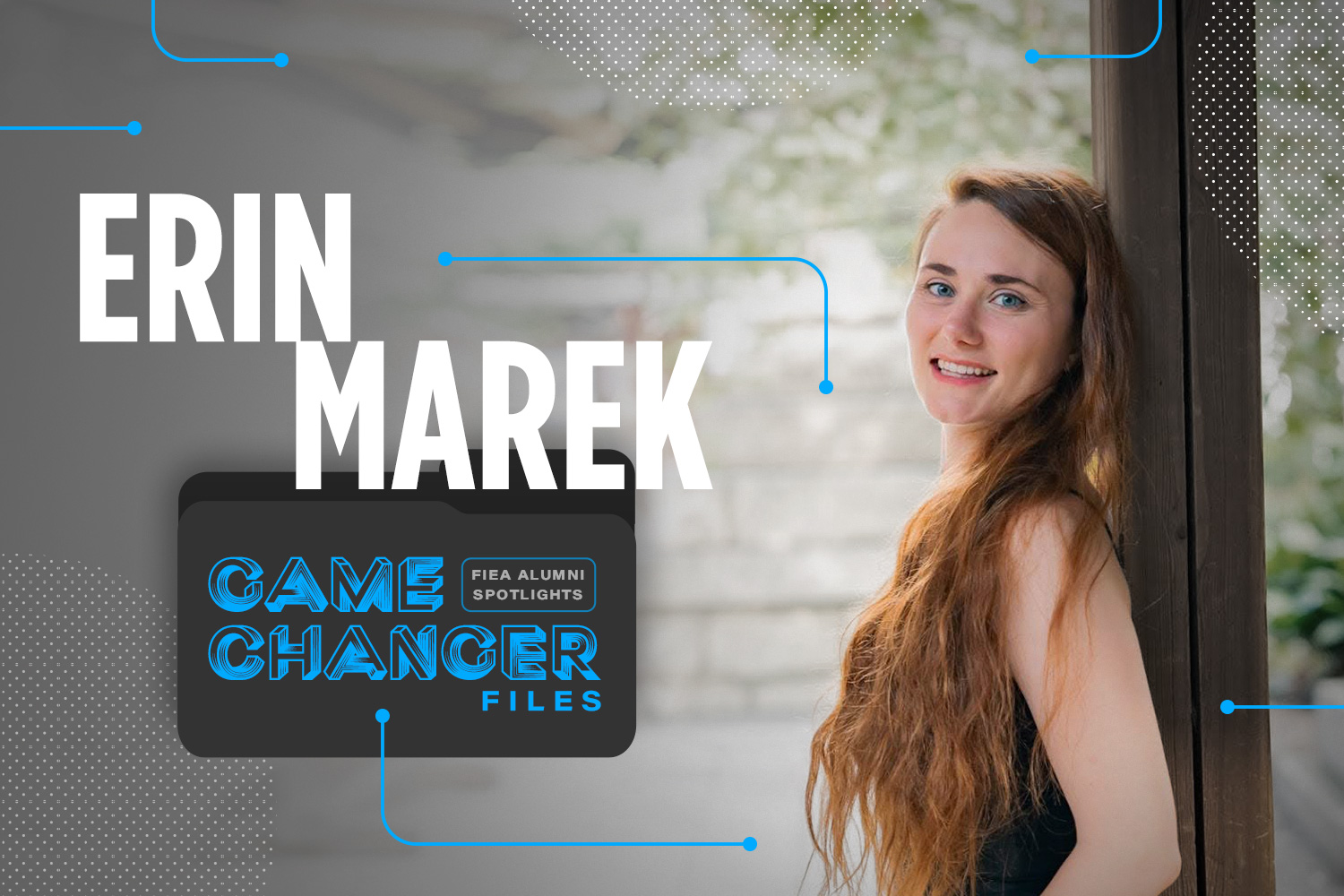Game Changer Files: Erin Marek ’17MS, Game Director at Secret Door
October 1, 2024

Erin Marek ’17MS, FIEA alumna from Cohort 13.
1. Status: Where are you currently working and what projects are you currently working on (if you can share)?
EM: I’m currently working as the Game Director at Secret Door, which is a part of the Dreamhaven collective. I can’t share what we’ve been working on, but keep an eye out. We’ll have news coming up soon!
2. Noob: Tell us what you did before your time at FIEA. What inspired you to attend FIEA?
EM: Before FIEA, I was studying biology and doing lab and field research focused around biodiversity and ecology. I was researching mycorrhiza in Sweden, up in the Arctic Circle. It was fulfilling, but being around a group of incredibly dedicated scientists, I realized science wasn’t my passion.
Panic set in when I decided pursuing science as a career wasn’t what I wanted to do. I sat down and took a real hard look at myself. Where I was spending all my free time was crafting, designing, and running D&D campaigns as a Game Master. My eyes opened when I realized that was what I wanted to do for a living. Game development felt like the closest professional match to the things I loved about game mastering tabletop RPGs. So I did some research, found FIEA, and the rest is history.
3. PvE: How did FIEA prepare you for the industry?
EM: Coming into FIEA, I knew absolutely nothing about game development. I still remember people throwing around words like Unity and Unreal on my first day… I had no clue what they were talking about. In addition to lacking knowledge about developing games, I didn’t really have any technical skill on the programming or art side.
I can’t imagine a world where I would have been able to break into the game industry without FIEA. I discovered how games are made and the skills needed to be a developer. I learned about various disciplines, what their roles are, and the skills they contribute to the greater ecosystem of game development. Not only was it learning through classes, but more importantly, it was through hands-on creation of games. The environment itself included individuals specializing in a discipline, which meant I got a lot of practice collaborating and communicating with people of very different skillsets, goals, and motivations.
4. PvP: Please share any advice you have for current FIEAns as they enter the game development industry.
EM: I’ll try to keep my advice short and sweet:
- The image and relationships you build will stick with you. This is true for both FIEA and beyond FIEA. It can significantly help and hurt you in getting jobs in the future.
- Not every studio works the same. Work culture, studio structure, and other facets can vary widely. Figure out how you like to work and find studios that align with that workstyle.
- The learning doesn’t stop at FIEA. To get the most from FIEA it means you also have to do a lot of self learning. Practice that skill and then carry it with you into the industry. The gaming industry moves fast, and there are always new things to be learning.
- Making games is a team-oriented profession. Hold yourself to a high bar of emotional maturity and professionalism in the way you collaborate and communicate. This is true at FIEA, and even more so post-FIEA.
- Understand you want to prioritize for yourself. There isn’t a wrong answer, but knowing this will help you make tough decisions about your career and the role it plays in your life.
5. AFK: Do you have any recent, interesting personal successes, new hobbies, family updates or activities you would like to share?
EM: I just hit a five-year anniversary for game mastering my homebrew D&D campaign. The group I play with includes two folks from my cohort at FIEA (we were all on the same capstone team!).